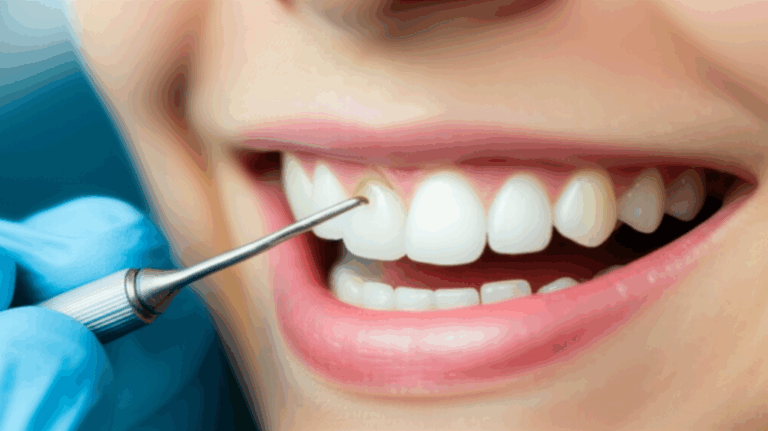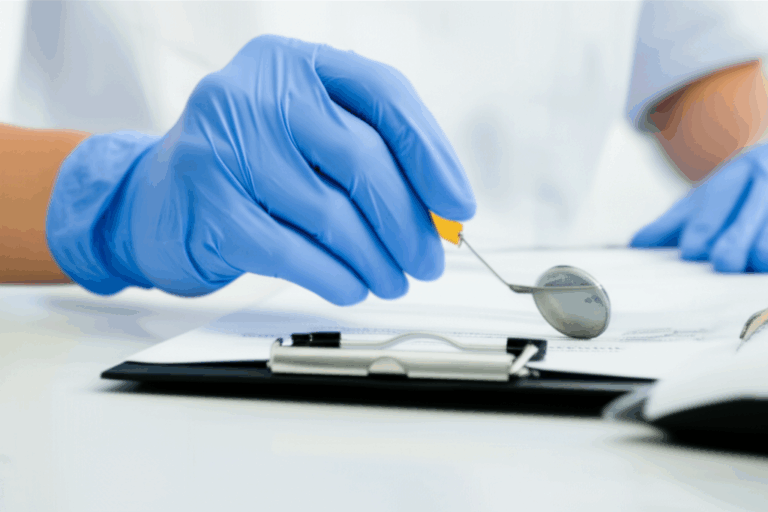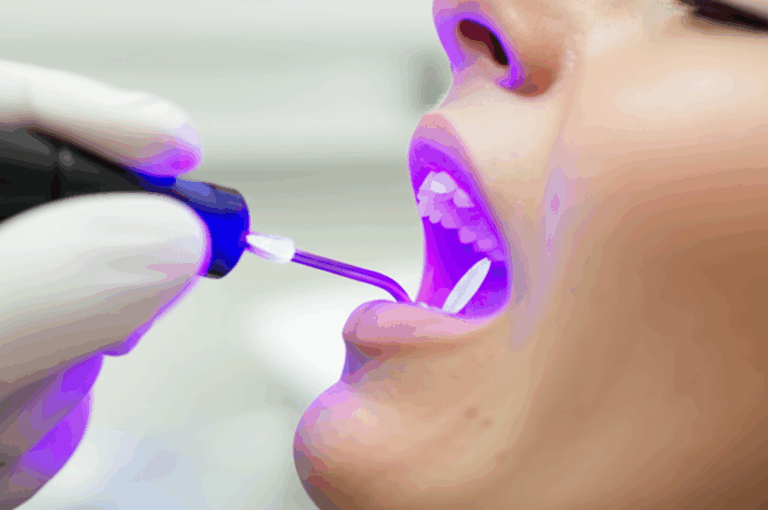
What Benefits Do Dentists Get? A Comprehensive Look at a Rewarding Profession
Summary:
Ever thought about why being a dentist sounds good to a lot of people? In this article, I’ll show you all the good things about being a dentist. You’ll see why it’s a great job—good pay, steady work, and the chance to help people smile every day. If you or your family is thinking about a job in dental care, keep reading to see if this path is right for you!
Table of Contents
Why Do People Want to Become Dentists?
When you think about dentists, maybe you see someone in a white coat, cleaning teeth, or telling you to brush. But there’s a lot more to it. Many people pick dentistry because it’s a job where you help others, get paid well, and control your own work life.
When I was young and went to our family dentist, I noticed he had happy patients, nice staff, and seemed happy with his work. He took lots of great vacations, too! It’s not just about teeth—being a dentist lets you make real connections, earn people’s trust, and stay at the heart of healthcare.
People become dentists because they see a lot of good things: money security, respect, free time, and making people happy, one smile at a time.
Do Dentists Make Good Money?
Money is important when picking a job! If you check the facts, dentists are some of the best-paid health workers. Groups like the American Dental Association (ADA) and the Bureau of Labor Statistics (BLS) say dentists make strong incomes nearly everywhere.
Table: Average Dentist Salaries in the United States
| Dental Job Title | Average Salary (per year) |
|---|---|
| General Dentist | $180,000 – $220,000 |
| Orthodontist | $250,000 – $350,000 |
| Oral & Maxillofacial Surgeon | $300,000 – $400,000 |
| Endodontist | $250,000 – $300,000 |
Of course, pay can change depending on where you work, how much practice you have, and if you own your own clinic. Many dentists also grow their money by owning a dental office, which means more control over income and free time.
If you’re thinking about what you get back from spending time and money on dental school, these numbers show that being a dentist can mean long-term money safety—and even reaching your money goals sooner.
How Secure is a Dental Career?
No one wants to work hard at school just to end up without a job. Here’s some good news: people always need dentists, so it’s a job with a strong future.
The BLS says dentist jobs should go up by 4% over the next 10 years. Everybody needs dental care to eat, to talk, and to feel good about themselves. Even when money is tight for everyone, dentists still get work. No one likes a hurting tooth!
If you want a job that lasts a long time, dentistry is a safe bet. Dentists are needed everywhere—in big cities and small towns. Some rural areas even want dentists more and may offer extra help to get dentists to come. If you pick dentistry, you can count on having work for years.
Can Dentists Be Their Own Boss?
Not everyone likes being told what to do by someone else! Many dentists love that they can start their own clinics. Imagine picking your office design, hiring your team, and setting your own rules.
Dentists who own clinics control their whole day. They pick their tools, build caring teams, and choose what services they want to provide. A lot enjoy making a business that helps the community and their own families.
Running a place isn’t always easy—you need skills like leading others, planning money, and taking care of patients. But the best part—freedom—is a big reward. If you dream about being the boss, dentistry can make that happen.
Learn how digital dental lab technology helps private dentists work better.
What is Work-Life Balance Like for Dentists?
Do dentists have any time for family or fun? You might be surprised—most dentists say they have a good work-life balance. Unlike some doctors who work nights, weekends, or crazy hours, dentists often pick their own schedules.
Clinic owners usually work about 32 to 36 hours a week. Others work around 35 to 40 hours. Many dentists take long breaks, especially those who own their offices.
Some even work part-time! This lets them have more time for their kids, travel, or enjoy time outside of work. If you want a job that lets you see your family and friends, dentistry is a great choice.
Do Dentists Change People’s Lives?
It’s hard to forget the pain of a sore tooth—or the big boost you get from having a nice smile.
Dentists do more than just clean teeth. They help people who are hurting, give them back the chance to eat foods they love, and help them look and feel better. Cosmetic care like veneers, teeth whitening, or dental implants can totally change someone’s confidence.
Dentists also build long connections with patients—sometimes for generations! People trust dentists with more than just their teeth. In fact, research says over 90% of dentists feel they truly make a big difference to their patients.
When you help people feel better about their smiles, it’s more than a job—it’s something special.
See how a good veneer lab can help dentists change smiles for good.
Is Dentistry Boring or Exciting?
Think being a dentist is just fixing teeth? Think again. Every patient brings a new story. One day, you’re helping a little kid. The next, you’re using cool machines like digital X-rays or CAD/CAM tools.
Dentists have to solve new problems every day. They use brains, hands, and people skills all at once. Some even use high-tech things like 3D printers, lasers, or digital tools that make work quicker and easier.
And don’t forget—there’s always something new to learn. Dentistry is a job where you never stop getting better.
Are Dentists Respected in Society?
Everyone likes to be respected in their job. Dentists get a lot of respect! They often score higher than lawyers, politicians, or businesspeople in surveys.
People see their dentist as a helper, teacher, and friend. Dentists are asked to speak at health days, schools, and local events. Some help make local rules about health, too.
Being a dentist means you are a big part of your area. That respect feels good and reminds you that your work matters.
Do Dentists Keep Learning New Things?
Dentistry is always changing. There are new ideas, new tools, and new ways to help patients. Dentists keep learning with continuing education classes, usually 25–30 hours a year.
Some dentists study more and become experts, like oral surgeons or orthodontists. Others get really good at using tools like intraoral scanners or high-tech dental lab gear.
Learning new things helps dentists give even better care. For people who like new stuff, this makes the job fun all the time.
See how working with a 3D dental lab keeps dentists growing and learning.
What Other Perks Do Dentists Get?
Dentists get more than pay and a name in the community. Most get good benefits like health plans, money for retirement, and sometimes extra pay.
Dentists can join groups like the American Dental Association (ADA) or Academy of General Dentistry (AGD). These groups help with advice, research, and team support.
Those who own their practice might even save on taxes by owning their tools and offices. They can also invest in property, dental products, or new tech.
On top of that, dentists get chances to help new dentists, join studies, or volunteer to help people in need—giving smiles to people all over the world.
See how a top china dental lab helps dentists give custom crowns, bridges, and more.
FAQ: Common Questions About Dentistry
Q: How many hours do dentists work each week?
A: Most dentists work between 32-40 hours a week. Owners can pick their own hours.
Q: Can dentists focus on certain treatments?
A: Yes! Dentists can train to be experts like orthodontists, endodontists, or oral surgeons.
Q: Is it hard to start a dental clinic?
A: It takes some work and planning, but many dentists see it as worth it and a smart way to earn.
Q: How do dentists keep learning after school?
A: Dentists take classes and training every year to keep up with new things and keep their skills fresh.
Q: Do dentists help the community?
A: Yes! They teach about healthy teeth, join community events, and even help with global health projects.
Key Points to Remember
- Dentists make good money, between $180,000 and over $400,000 for the best specialists.
- The dental job always needs people—everyone needs teeth care.
- Dentists can work for someone else or run their own place, getting more freedom.
- Most dentists say they have a great mix between work and life, with time for their families.
- Helping a patient’s smile often means making their whole life better.
- Dentistry is always changing, so you always learn new skills and use new tech.
- Dentists are trusted and looked up to in their towns and cities.
- There’s more than money—dentists get support, friends, ways to grow, and more.
- New dental tools and ideas are making work easier and care better all the time.
Thinking about being a dentist for yourself or someone you care about? Remember all these benefits of dentistry—it could be just what you’re looking for!








